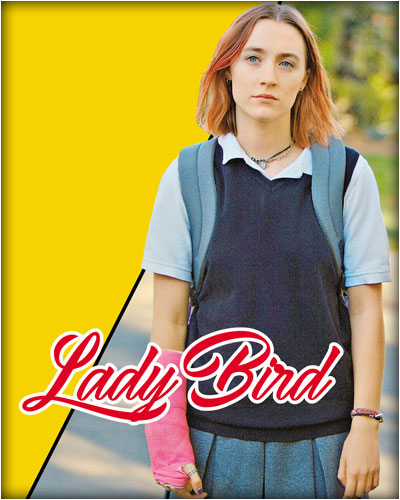What’s to watch on Netflix?
- 13 Apr - 19 Apr, 2024

In Lady Bird, one may see a lot of familiarity – especially if that person belongs to the female sex. Saoirse Ronan plays Christine (aka. Lady Bird), an unruly daughter of a very emotionally closed, yet verbally violent mother played by Laurie Metcalf. The story is fixed on a small portion Lady Bird’s life – a time when she is about to finish school and move on to higher education.
In writer-director Greta Gerwig’s hands, it becomes so much more, yet stays so very minimal. As we stay transfixed with Lady Bird’s personal evolution – her sexual awakening, moving on from one crush to another, or from one friend’s circle and social class to another – we realize that her story is quite relatable, and very grounded.
Lady Bird is a woman-filmmaker’s triumph, chiefly because this film could not have been made by a man. From the all-too-real texture of the cinematography, or the aptly timed edits, or the harrowing nature – and depth – of a mother and daughter relationship, one can see a woman’s touch in every nook and cranny of the narrative.
Now, by a woman’s touch I am not talking traditional chauvinistic views of spic-and-span cleanliness. I am referring to the uneasy, complex yet uncomplicated ways of a woman’s mindset. Both Lady Bird and her mother are complex creatures, dealing with emotions in very real – and at times very verbally violent – ways. They love each other, yet being headstrong, they fight like mad bulls, yet at the same time, the fights aren’t meant to end relationships…maybe, just hurt the other person for five seconds. If you’ve lived through such fights, you know those five seconds hurt like mad.
Lady Bird is a difficult film to write, much less make – a fact that only ends up having the viewer appreciate Gerwig’s astuteness and clarity of thought as a filmmaker that much more.
COMMENTS